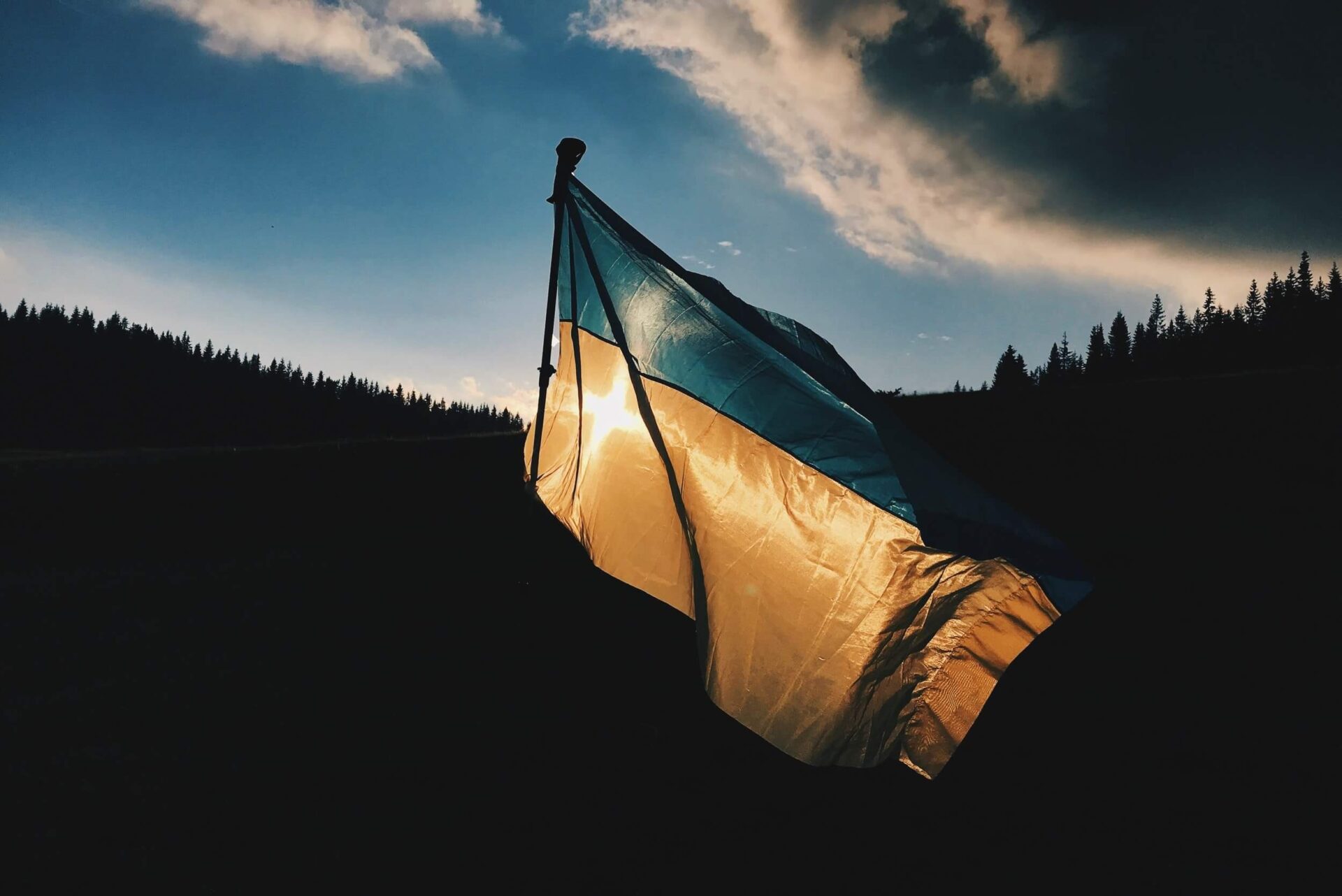Nearly four million people have fled their homes in Ukraine, crossing into neighboring countries, since Russia invaded in February. Even more have been internally displaced within Ukraine.
What has unfolded has been nothing short of a tragedy.
According to the United Nations High Commissioner for Refugees (UNHCR), over two million of these individuals have fled to Poland with hundreds of thousands currently displaced in Romania, the Republic of Moldova, Hungary and other surrounding countries.
The vast majority of those fleeing are women and children. We’ve all seen painful images of mothers, babies and kids sleeping on makeshift beds, bundled in winter coats carrying suitcases stuffed with whatever belongings they could fit and waiting in outdoor lines for hot meals.
Many of us have experienced moments of feeling helpless as this tragedy unfolds, searching for small, but meaningful ways to support Ukrainians. Soft Landing and other Missoula community partners recently came together to raise close to $20,000 for World Central Kitchen, an organization providing hot meals for displaced families in the region.
U.S. to accept 100,000 Ukrainians
President Joe Biden recently announced the United States would accept 100,000 Ukrainians and other displaced people fleeing the conflict, in an effort to relieve pressure on European countries straining under the massive influx in people.
This will include not only refugees designated for resettlement, but also people under a number of different legal pathways, ranging from travel and student visas, to possibly even humanitarian parole- a status that grants temporary approval to people fleeing wartime crisis to live and work in the United States. We recently saw this status used to expedite the arrival of tens of thousands of Afghans after the fall of Kabul last August.
Additionally, the Biden administration already granted Temporary Protected Status (TPS) to Ukrainians currently inside the United States whose visas might expire. They will be allowed to work and live in this country legally for up to 18 months.
What does this mean for Missoula?
Many in Missoula have called Soft Landing asking how to help, or whether we know if/when Ukrainians might arrive here. We are so grateful and heartened by the outpouring of support, and while we too are eager to help, we should remember that this is a marathon, not a sprint.
While we don’t have many details or a timeline right now, including how this will pertain to Missoula, what we do know is that we are likely to receive Ukrainian families at some point. As shown with the success of resettlement in Missoula over the last 5 years and its selection as a site to receive Afghan evacuees, our city has proven itself to be a welcoming place for refugees to land.
We also know that things can change fast. It could be weeks before we know more, or it could be days. Here at Soft Landing, we will be diligent in following updates and do our best to keep ourselves, and you, informed as to how to help when the time comes.
White House officials have said priority will be given to people with family in the United States. We know there are some Missoula residents with family ties in Ukraine and the surrounding region. Locally, the International Rescue Committee (IRC) in Missoula will field any resettlement requests and support any new arrivals to Missoula should they occur. Soft Landing and other community partners will also be here to lend a hand, as we do with folks arriving as refugees from any other country.
Global perspective
The 100,000 Ukrainians the United States aspires to welcome over the next year and a half mirrors the number of Afghans who were granted entry on the heels of the military’s departure from Afghanistan and the Taliban’s subsequent takeover less than a year ago.
The fast-paced and urgent exit from Afghanistan caused the entire refugee resettlement process for people from other countries to grind to a halt as the federal government focused its resources on getting Afghans out. While this speedy evacuation was essential, this meant that many families from other war torn areas from around the world were left in further limbo as they awaited a slowed resettlement system.
According to the International Rescue Committee, this system-wide slow down shouldn’t happen again as the United States welcomes Ukrainians, in part because the refugee resettlement system has had a chance to begin to rebuild after four years of decreased capacity in the previous administration. Also, the process to welcome Ukrainians to the United States is likely to move at a slower pace because many people fleeing hold the hope that they will be able to return at some point should the invasion end and they want to stay closer to home.
The federal government has also said it will not airlift any evacuees from Ukraine to the United States, as we did in Afghanistan. With people being accepted under so many statuses, not just as refugees, there are still many questions about how this will all play out.
The crisis in Ukraine has undoubtedly resulted in mass suffering of innocent people. And while it’s been incredible to see the world rally around these brave individuals in so much need, as it did around Afghan evacuees as well, here at Soft Landing Missoula, we are intimately aware that the same welcome must be extended to other people facing similar crises.
When nearly 1.3 million people from the Middle East and Africa were displaced in 2015 against the backdrop of a gruesome war in Syria, many countries were reluctant to accept them. Tens of thousands of people have been stuck for months seeking asylum at the US-Mexico border, unable to return home where they escaped violent crime, drug cartels and persecution. Meanwhile, many Ukrainians and Russians have arrived at this same border over the last few months and have been allowed to cross into the United States and process their asylum claims from within the country. And then there’s the Tigray Region in Ethiopia, where war has ravaged the region, killing thousands and leaving millions of people at risk of starvation, including friends and family members of Eritreans right here in our own city, yet it barely makes headlines.
In a moment when the world’s eyes are once again fixed on refugees and war-related displacement, we want to reiterate our firm belief that all people enduring violence and persecution are worthy of the support and welcome we’ve rightfully offered up to the Ukrainians.
——————————————————————————————————————————–
We know these conversations involve a lot of jargon. Here’s a refresher on the key terms you need to know about refugees and other pathways of entry into the United States.
GLOSSARY
Refugee: An internationally protected person who has been forced to flee his or her country, crossing the border into another one because of persecution, war or violence. This person must have a well-founded fear of persecution for reasons of race, religion, nationality, political opinion or membership of a particular social group. A refugee must register with the United Nations in the first country of arrival, pass a “credible fear” interview based on these categories, and then go through an extensive application for refugee resettlement before being approved to resettle to a third country, such as the United States. Less than one percent of the world’s most vulnerable refugees will be given this chance. The large majority of the world’s refugees remain in limbo in neighboring countries for years, if not decades.
Refugee resettlement: This is the process by which someone who applies for and is granted refugee status gets placed in a third country, usually due to a heightened level of vulnerability or family reunification. Here in Missoula, refugee resettlement is run through the International Rescue Committee and supported by other community partners such as Soft Landing Missoula. When a refugee is resettled, he or she receives permanent status to stay in the United States with a five-year path to citizenship.
Asylum-seeker: A person who has fled his or her home country and seeks protection from persecution, but has not yet been granted the protected status of a refugee. People apply for asylum from within the country they have fled to and hope to remain in or at a port of entry. Asylum is a legal, internationally recognized law under the 1951 UN Refugee Convention and was later brought into domestic US law with the refugee Act of 1980. Someone granted asylum gains the same permanent status as a refugee and eventually has the opportunity to apply for lawful permanent residence and citizenship.
Humanitarian parole: A category of status given by the federal government to a person who must enter the United States quickly based on urgent humanitarian reasons. Someone with humanitarian parole is allowed to be in the country temporarily, but then must go through the normal asylum application process. Without the asylum application, humanitarian parole does not include a path to permanent residency on its own.
Temporary Protected Status: The secretary of Homeland Security may designate a foreign country for Temporary Protected Status (TPS) due to conditions in the country that temporarily prevent its nationals from returning safely. This applies to people from certain countries, or parts of countries, that are already in the United States.
Internally displaced person: Someone who has fled their home but has not left the borders of his or her own country. An internally displaced person is usually forced out of the primary residence due to war or other forms of oppression, often trapped within conflict zones. Most displaced persons worldwide are internally displaced.

